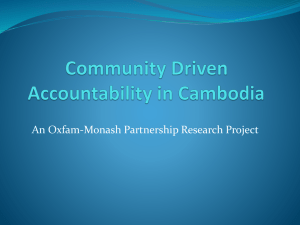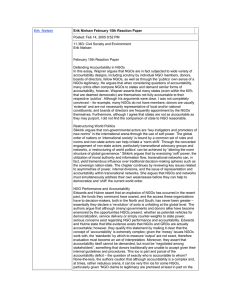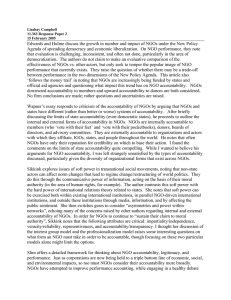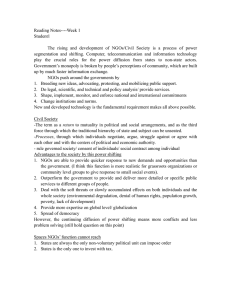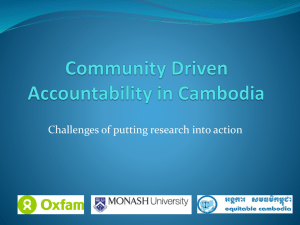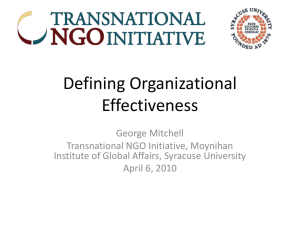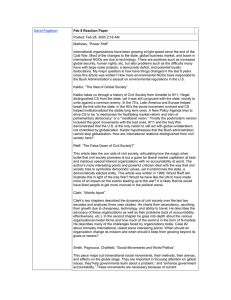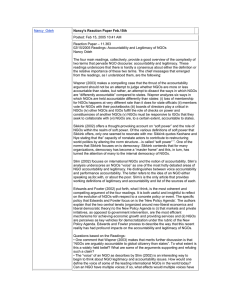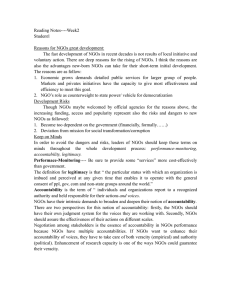David Fogelson February 15 Reaction Paper Posted: Feb 27, 2005 9:42 PM
advertisement
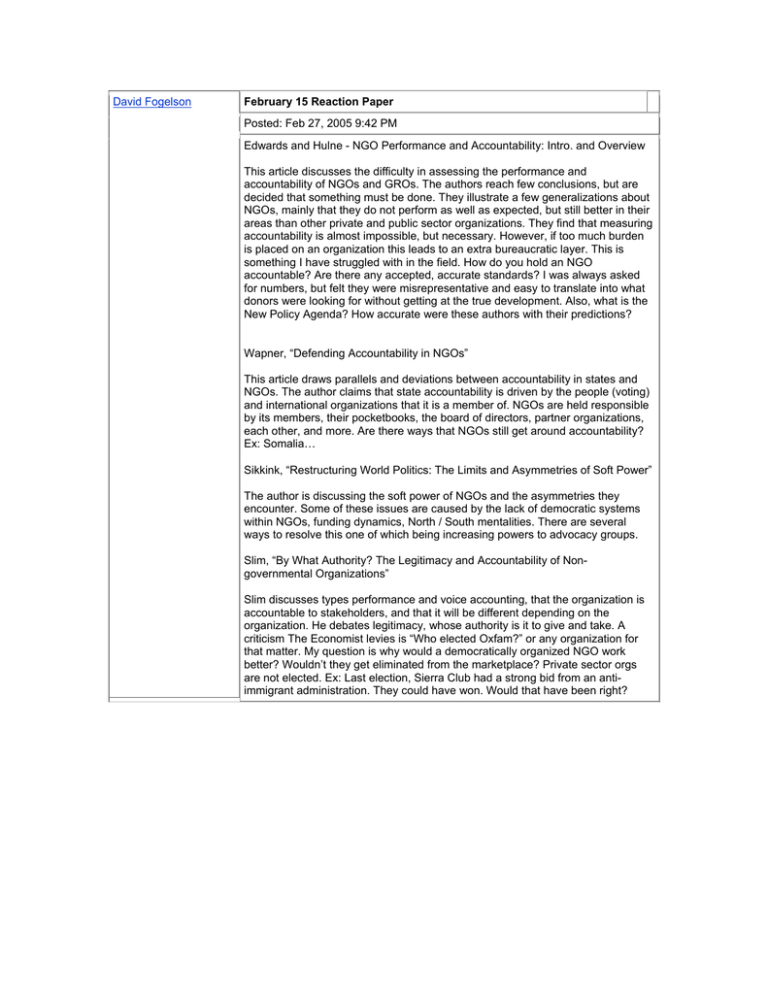
David Fogelson February 15 Reaction Paper Posted: Feb 27, 2005 9:42 PM Edwards and Hulne - NGO Performance and Accountability: Intro. and Overview This article discusses the difficulty in assessing the performance and accountability of NGOs and GROs. The authors reach few conclusions, but are decided that something must be done. They illustrate a few generalizations about NGOs, mainly that they do not perform as well as expected, but still better in their areas than other private and public sector organizations. They find that measuring accountability is almost impossible, but necessary. However, if too much burden is placed on an organization this leads to an extra bureaucratic layer. This is something I have struggled with in the field. How do you hold an NGO accountable? Are there any accepted, accurate standards? I was always asked for numbers, but felt they were misrepresentative and easy to translate into what donors were looking for without getting at the true development. Also, what is the New Policy Agenda? How accurate were these authors with their predictions? Wapner, “Defending Accountability in NGOs” This article draws parallels and deviations between accountability in states and NGOs. The author claims that state accountability is driven by the people (voting) and international organizations that it is a member of. NGOs are held responsible by its members, their pocketbooks, the board of directors, partner organizations, each other, and more. Are there ways that NGOs still get around accountability? Ex: Somalia… Sikkink, “Restructuring World Politics: The Limits and Asymmetries of Soft Power” The author is discussing the soft power of NGOs and the asymmetries they encounter. Some of these issues are caused by the lack of democratic systems within NGOs, funding dynamics, North / South mentalities. There are several ways to resolve this one of which being increasing powers to advocacy groups. Slim, “By What Authority? The Legitimacy and Accountability of Nongovernmental Organizations” Slim discusses types performance and voice accounting, that the organization is accountable to stakeholders, and that it will be different depending on the organization. He debates legitimacy, whose authority is it to give and take. A criticism The Economist levies is “Who elected Oxfam?” or any organization for that matter. My question is why would a democratically organized NGO work better? Wouldn’t they get eliminated from the marketplace? Private sector orgs are not elected. Ex: Last election, Sierra Club had a strong bid from an antiimmigrant administration. They could have won. Would that have been right?
